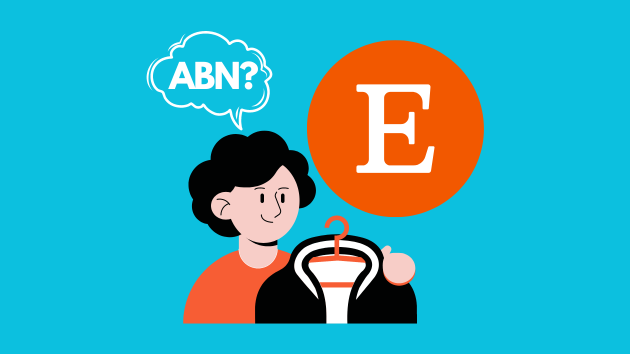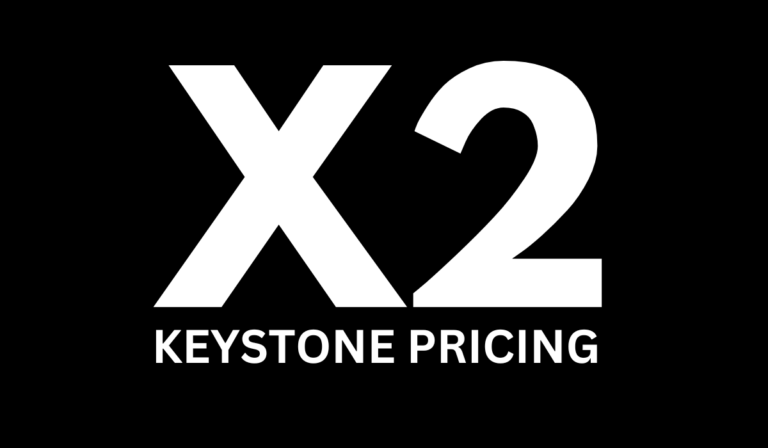If anything seems too good to be true, perhaps it is.”
Dropshipping can be taken as an example. Undoubtedly it is still profitable in 2023 and will also continue to shine in the coming time. However, let it be clear that drop shipping can be an uphill struggle to get your business off the ground but it can be powerful for eCommerce business.
Did you know?
The colossal risks and costs involved in inventory can be efficiently avoided by drop shipping.
Yes, you heard it right and if you are a budding online business or planning to start an eCommerce business, certainly now your next step will be searching for drop shipping companies. Just like the good news above, there’s another silver lining.
We have a list of best dropshipping companies for your eCommerce business. Pretty sweet gesture, right?
No shipping, no storing inventory, no spending money for inventory upfront, just embrace dropshipping, it will look after everything in a most cost-effective way.
Best Drop Shipping Companies Quick List
You can start to dropship and sell products with any of these suggested drop shipping companies listed below:
Learn More: Best Australian Dropshipping Suppliers
Best Drop Shipping Companies to Partner with
1. Doba – Most Extensive Drop Shipping Company
No need to purchase inventory upfront or even pack and ship orders, just add products to Doba. Here you can get access to hundreds of drop shipping suppliers, you simply have to discover the product you want to sell on Doba, list them on your online store, and start selling. Find more products and start selling again.
Doba is compatible with Shopify, BigCommerce, Volusion, Magento and other top shopping cart providers.
Pros
- Showcases over 1.6 million products offered by almost 139 suppliers
- Free trial available
- Discover trending and easily manage the products list
- Export bulk products to your store or any online marketplace of your choice
- Compatible with most of the known shopping cart providers
- Get email updates about the discounts, trending products and everything that matters for your business the most
Cons
The only drawback of the Doba dropshipping is its cost. It is quite expensive as compared to the competition
2. Wholesale2B
Browse some products, just select and post it on your site and wait for the buyers to purchase, that’s it. Wholesale2B is a drop shipping service that can help you gain the extra edge among your competitors.
Whether you use popular marketplaces like Amazon or eBay or prefer selling products on your own online store, Wholesale2B serves as a reliable platform. For the beginners, it is the place where they can find trustworthy suppliers for affordable products and sell them at a good price
Just identify products with great profit margins, verified suppliers you want to work with and go ahead with drop shipping.
Pros
- Can access a whopping 1.5 million products
- Simple to set up and ready to roll
- Flexible plans as per your choice of marketplace
- Real-time integration with popular eCommerce platforms like Magento, BigCommerce, Shopify
Cons
- Poor customer support as you cannot contact Wholsesale2B via phone or email, you have to follow the tedious ticketing process
- Too many plans make the pricing a bit complicated
- Cannot get personalized orders
- Ultimately sell other brand products/manufacturer
3. Oberlo
If you want to start making money without risk, Oberlo can be a good stepping stone. It is an easiest dropshipping plugin that allows you to quickly import products to your Shopify store. Yes, to use Oberlo, you need to be a Shopify user.
This platform gets you connected with thousands of suppliers who will later ship the products directly to your customers. Like most of the other drop shipping services, even with Oberlo, you don’t have to worry about packaging, shipping or holding inventory.
Pros
- Elegant and user-friendly interface
- Easy product importing from AliExpress to Shopify
- Can start off with the free account
- Automatically handles order fulfillment
Cons
- Only suitable for Shopify stores
- Only support products from AliExpress
- Poor chat support
- Multi-store management is not up to the mark
4. Megagoods
When it comes to the cheapest dropshipping tool, Megagoods ranks first. It is dedicated to consumer electronics and video games in 45 categories. If you are a seasonal business person, you can take full advantage of this platform
Megagoods follows a simple and easy-to-understand dropshipping approach, so it is favorable for the starters. In case of technical problems, you can attain support only through the ticket system. Now, that’s the only thing which sounds daunting, isn’t it?
Pros
- The cost is lower than what the products usually retail for
- Though the platform doesn’t boast millions of products, quality of products is given more importance
- Electronics of best brands are available
Cons
- No research tools available
- Poor customer support
- Lack of a few important features like automated integration tools, inventory notifications, shopping cart integration
5. SaleHoo
8,000+ suppliers, over 2.5 million products. Already sounds worth a try, isn’t it? Salehoo is a powerful tool for your eCommerce business. It predominantly offers a detail of suppliers with whom you carry out your business. In short, Salehoo is not a service, it is actually a wholesale directory.
So, if you are planning to start your own business, Salehoo is a good bet. It also ensures the supplier is real and is selling authentic products.
Pros
- Offers blog and forum for easy learning
- Customer support is just mind-blowing
- Around 70% of suppliers do not require an application fee
Cons
- No free trial available
- Difficult to find products that can help to make more profits
- Training can be daunting
6. Wholesale Central
Wholesale Central is basically a wholesale directory connecting retailers and wholesale suppliers. It is a decent drop shipping tool with over 1000+ genuine supplier offerings. There are no middlemen, you will be working directly with the manufacturers.
Wholesale Central offers a wide assortment of product categories like clothing, hair and beauty, food, military goods and much more. Remember, the directory list is flooded with many types of suppliers but not all of them drop ship. Also, Wholesale Central does not itself offer dropshipping service, so you may have to pay platform and other service fees.
Pros
- Most of the Wholesale Central offers and features are free to use
- Quick and intuitive navigation
- Offers various methods of sourcing new suppliers and products
Cons
- Suppliers are more but drop shippers directory is small
- No selling and integration tools
- No email or live chat options
7. Spocket
Spocket is a dropshipping app that integrates with Shopify as well as WooCommerce stores. You will be happy to know that it has a colossal marketplace with unlimited products also including print-on-demand goods.
You can sell high-quality products just by acquiring it from suppliers that too at a great discount like almost 60% off than the retail price. Wow! Sounds, amazing.
Pros
- Offers quality tested dropshipping products
- Save time with automated order processing
- Worldwide shipping available
- A free plan is available
- Automated pricing process
Cons
- Custom duty and taxes not included
- Can’t sell at popular marketplaces like Amazon, eBay, Etsy etc.
- No chat or call support available
Is dropshipping still a good business?
Dropshipping can still be a profitable business, but it depends on a number of factors, including the niche you choose, your marketing strategy, and your ability to effectively manage your supply chain and customer service.
One advantage of dropshipping is that it allows you to start an online store with very little upfront investment, since you don’t have to purchase inventory upfront. Instead, you work with suppliers who handle the warehousing and shipping of the products you sell. This can be particularly attractive for entrepreneurs who want to start a business without a lot of capital.
However, the low barrier to entry means that competition can be fierce in many niches, and profit margins can be slim. Additionally, managing your supply chain can be challenging, as you will be relying on your suppliers to deliver products on time and in good condition.
To be successful in dropshipping, it’s important to carefully research your niche, build a strong brand and marketing strategy, and work with reputable suppliers who can consistently deliver high-quality products. It’s also important to be responsive to customer needs and concerns, as this can help build a loyal customer base and positive word-of-mouth marketing.
Overall, while dropshipping can still be a profitable business model, it’s important to approach it with realistic expectations and a solid plan for success.
How Much Money Do You Need to Start Dropshipping?
The amount of money needed to start a dropshipping business varies depending on several factors, such as the products you want to sell, the supplier you work with, and the platform you use to build your online store. However, in general, you can expect to spend at least a few hundred dollars to get started.
Here are some of the costs you may need to consider when starting a dropshipping business:
- E-commerce platform: You’ll need an ecommerce platform to build and manage your online store. Popular options include Shopify, WooCommerce, and BigCommerce. These platforms charge a monthly fee, which can range from $29 to $299 or more, depending on the features you need.
- Domain name and web hosting: You’ll need a domain name for your website, which typically costs around $10 to $15 per year. You’ll also need web hosting, which can cost anywhere from $10 to $50 per month, depending on the provider you choose.
- Product sourcing: You’ll need to find a supplier who will dropship products to your customers. Some suppliers charge a fee for this service, while others don’t. You may also need to pay for samples of the products you want to sell.
- Marketing and advertising: To attract customers to your store, you’ll need to invest in marketing and advertising. This can include social media ads, email marketing, influencer marketing, and more. The cost of these tactics can vary widely depending on your target audience and the platforms you use.
- Other expenses: Other expenses you may need to consider include website design and development, legal fees, and payment processing fees.
Overall, it’s possible to start a dropshipping business with a few hundred dollars, but you may need to invest more money over time to grow your business and generate more sales.
Final Words
Dropshipping has become an increasingly popular business model in recent years, and there are many companies out there offering dropshipping services. In this article, we’ve highlighted some of the best dropshipping companies to consider, based on factors like product selection, pricing, customer service, and ease of use.
Whether you’re just starting out with dropshipping or looking to switch to a new supplier, the companies on this list are all worth considering. Just remember to carefully research your options and choose a company that fits your business needs and goals.
Ultimately, the success of your dropshipping business will depend on factors like the niche you choose, your marketing strategy, and your ability to effectively manage your supply chain and customer service. But by working with a reputable dropshipping company, you can take some of the stress and uncertainty out of the process, and focus on growing your business and serving your customers.



